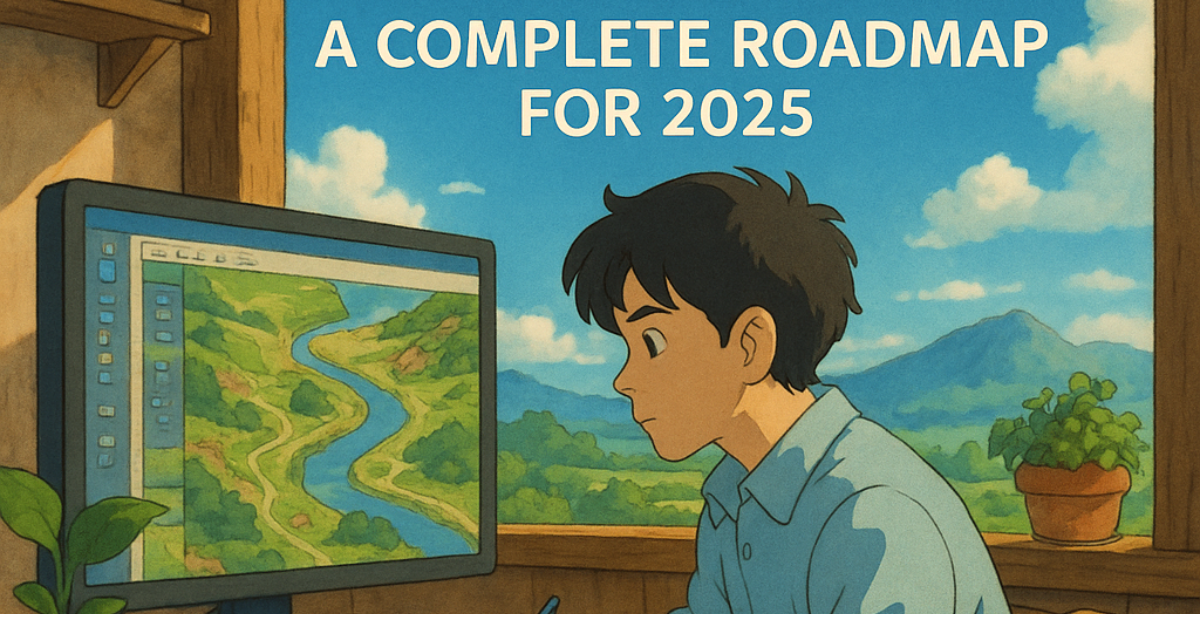10 Innovative Ways Farmers Are Using GIS in 2025
In 2025, Geographic Information Systems (GIS) are more than just maps—they’re powerful decision-making tools reshaping how farmers manage land, resources, and sustainability. As climate change, food demand, and land scarcity pressurize agriculture, GIS is becoming the backbone of smart farming strategies. Here are 10 innovative ways farmers are using GIS in 2025, with real-world examples showing just how powerful this technology has become. 10 Innovative Ways Farmers Are Using GIS 1. Precision Farming with Real-Time Soil Monitoring In 2025, precision farming has reached new heights with the integration of GIS technology and advanced soil sensors. Farmers are now deploying real-time soil monitoring systems across their fields that continuously collect data on key parameters such as soil moisture, temperature, salinity, pH, and nutrient levels. These sensors feed information directly into GIS platforms, which process and visualize the data spatially to produce ultra-high-resolution soil maps. Unlike traditional soil tests that are periodic and localized, this approach allows for dynamic, up-to-the-minute insights into every square meter of farmland. By combining geolocation data, satellite imagery, and IoT-enabled soil sensors, farmers can see where the soil is too dry, too acidic, or lacking in specific nutrients—empowering them to take targeted actions rather than treating entire fields uniformly. Real-World Example: Netherlands’ Data-Driven Dairy Farms In the Netherlands—a leader in agricultural innovation—many dairy farmers have adopted GIS-integrated soil monitoring systems to enhance pasture management and fodder crop production. These systems track the soil’s nitrogen levels in real time, allowing for variable rate nitrogen application. That means farmers can apply precise amounts of fertilizer only where needed, down to the square meter. By leveraging these GIS tools, Dutch farmers have reported: A 25% reduction in synthetic nitrogen fertilizer usage Lower input costs Improved environmental compliance with EU regulations Maintained or increased crop yields These benefits contribute not only to economic sustainability but also to environmental conservation, helping reduce nitrogen runoff into waterways and lowering greenhouse gas emissions. 2. AI-Powered Crop Disease Prediction In 2025, the fusion of Geographic Information Systems (GIS) with Artificial Intelligence (AI) and satellite imagery has revolutionized how farmers identify and prevent crop diseases. These systems use deep learning algorithms trained on thousands of geotagged images and environmental datasets to detect early signs of plant stress, such as discoloration, unusual growth patterns, or pest hotspots, long before they become visible to the naked eye. By analyzing spatial data trends—like humidity levels, temperature fluctuations, and historical outbreak maps—GIS-enabled AI models can forecast the likelihood of disease outbreaks across specific farm zones. Farmers receive location-specific alerts and visual heatmaps, allowing them to take targeted preventive measures like spraying fungicides or isolating affected areas. Real-World Example: Cotton Farmers in India In Maharashtra, India, cotton farmers traditionally struggled with bollworm infestations, which could devastate crops overnight. In 2025, a state-led initiative equipped farmers with access to a GIS-AI tool that analyzed satellite imagery, pest behavior data, and real-time weather conditions. The tool predicted bollworm risk zones up to 7 days in advance, giving farmers a critical window to act. As a result: Farmers applied pesticides only in high-risk areas Chemical usage dropped by over 30% Crop loss was reduced by 40% Yields increased, and farmers saved on costs This smart disease management not only improved farm income but also helped minimize environmental damage from over-spraying. 3. Automated Drone Surveillance and Mapping In 2025, automated drones equipped with multispectral and thermal sensors, combined with powerful GIS software, have become a game-changing tool in modern agriculture. These drones fly pre-programmed routes over farmlands and collect high-resolution imagery that is processed in real-time to generate vegetation index maps, such as NDVI (Normalized Difference Vegetation Index). These maps help track plant vigor, chlorophyll levels, water stress, and signs of pest or disease activity. Using GIS analytics, farmers can visualize spatial differences in crop health, compare areas over time, and spot problems early—often before visible symptoms occur. The system also allows for 3D mapping of terrain and plant canopy, enabling more precise irrigation, fertilization, and harvesting strategies. Real-World Example: Smart Vineyards in California California’s wine-growing regions, such as Napa Valley, are at the forefront of drone-based GIS farming. In response to increasing droughts and strict water regulations, vineyard managers have deployed drone fleets integrated with GIS dashboards to monitor vine stress and optimize irrigation. Here’s how it works: Multispectral drones fly over vineyards and gather data on vine canopy health, temperature, and moisture levels. This data is uploaded into a GIS platform, which produces color-coded maps showing zones that are under- or over-watered. Managers use this information to adjust drip irrigation systems precisely, delivering water only where it’s needed. Results: 30% water savings during California’s peak dry seasons Enhanced grape quality and uniformity Reduced energy costs for pumping water Better compliance with state water conservation laws This precision approach has allowed growers to maintain premium yields while adapting to a changing climate. Related Content: 5 Best Remote Sensing Projects for Crop Monitoring and Yield Prediction Top 10 GIS Research Topics for Sustainable Agriculture 7 Powerful GIS Applications in Agriculture 4. Smart Irrigation Planning In 2025, water management in agriculture has become far more intelligent, thanks to Smart Irrigation Planning powered by GIS. This innovation combines weather forecasting, soil moisture mapping, topography, and crop-specific water needs to create automated, location-specific irrigation schedules. By integrating GIS data layers—such as soil type, slope, evapotranspiration rates, and rainfall patterns—with IoT-connected sensors, farmers can now design field-level irrigation strategies that adjust in real time. These systems eliminate guesswork and manual intervention, ensuring just the right amount of water is delivered at the right time and place, improving both crop health and resource efficiency. Real-World Example: Israel’s Water-Smart Farms Israel, a global leader in agricultural water efficiency, has fully embraced GIS-driven irrigation. Many Israeli farmers, particularly those cultivating high-value crops like dates, avocados, and citrus, use systems that combine GIS, weather stations, and IoT soil moisture sensors. Here’s how it works: Soil moisture sensors feed live data into a GIS platform. The system cross-references this data with weather forecasts, … Read more








